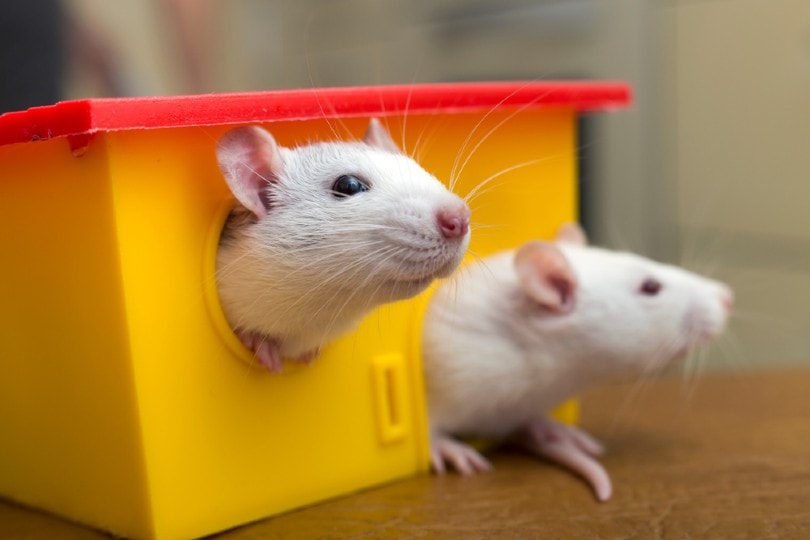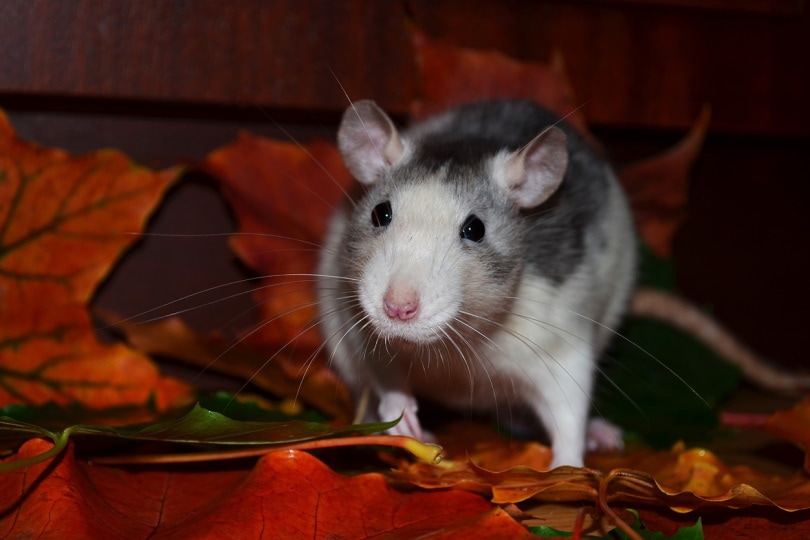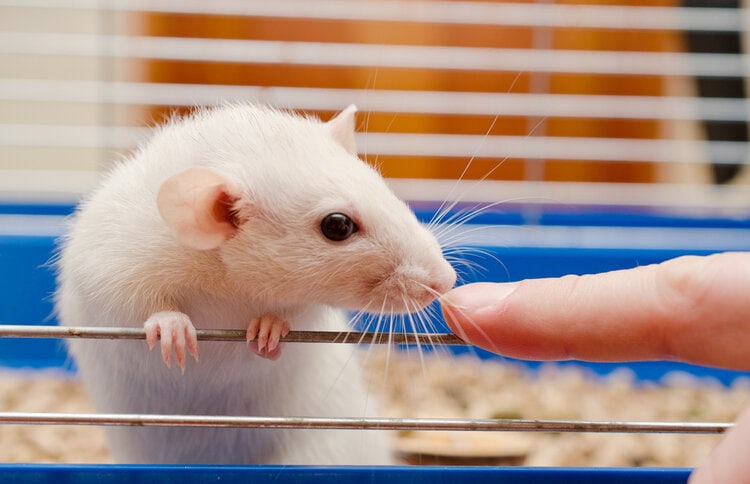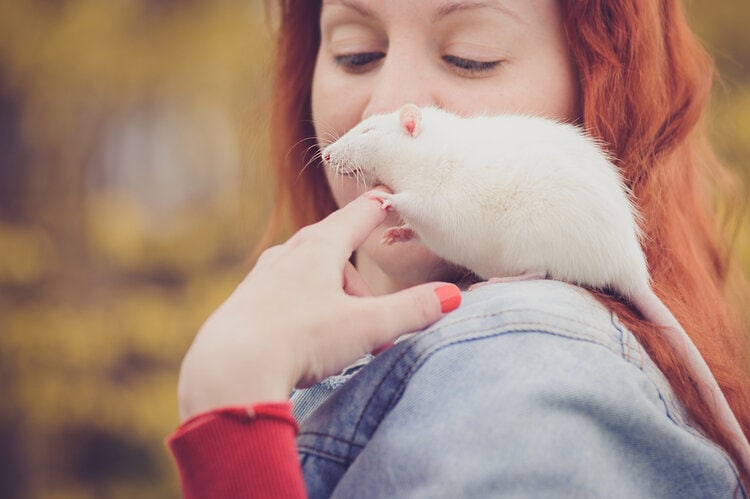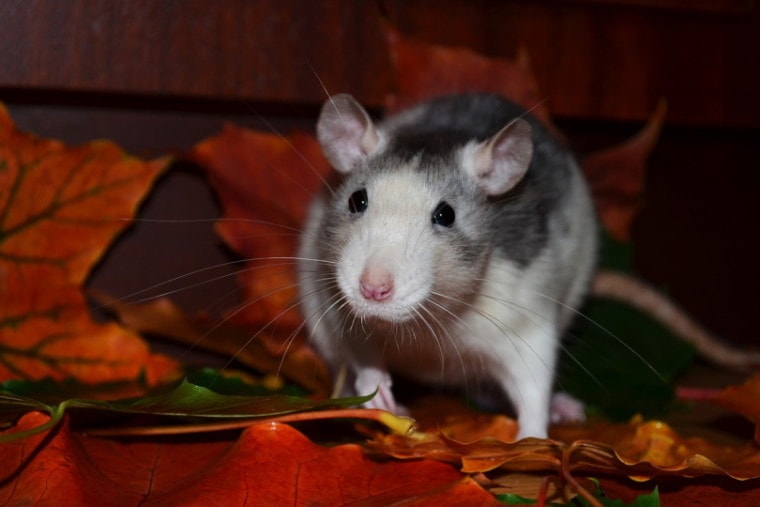
Rats make adorable pets. They are intelligent and easy to care for, and for the most part, they are happy to be handled. Many would-be rat parents worry about their pet rats keeping them up at night, though, and ask: Are rats nocturnal?
Yes, rats are nocturnal, meaning they are most active at night. However, they cannot see well in the dark. This applies to wild rats and pet rats; every species of rat spends most of the night awake. Surprisingly, though, rats cannot see well in the dark. The reason they are most active at night is that their eyes are highly sensitive to changes in brightness, and while they have poor night vision, the dark helps keep them safe from predators.
Are All Rats Nocturnal?
Both wild and domesticated pet rats are nocturnal by nature. Rats typically sleep for around 15 hours a day and are awake at night when there are fewer predators around. Even though pet rats don’t need to worry about predation, they are still attuned to this instinct. Even when kept in a cage, they’ll be up at night most of the time.
That said, domesticated rats have slowly become more crepuscular than nocturnal, meaning they’re awake and more active during the evening and early morning than at night. They are still up for a good few hours during the night, but not as much as their wild cousins. Domesticated rats tend to enjoy being around their owners and spending time with them, so they are known to adjust their sleeping schedules accordingly. Pet rats can even be up more during the day and catch up on sleep at night, but they are still mostly nocturnal if left to their own devices.
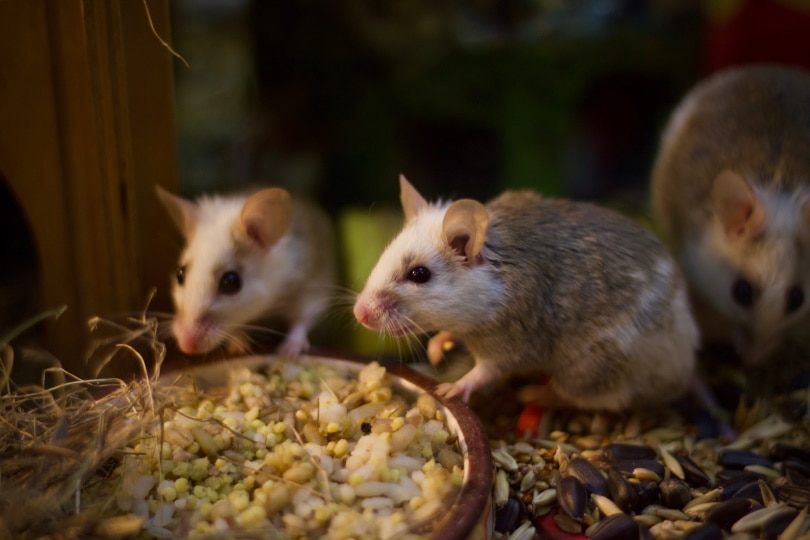
Can Rats See in the Dark?
Even though rats are most active at night, they have poor night vision. To compensate for this, they use their whiskers to help guide them and navigate. During the day, a rat’s vision still isn’t great. They tend to be most active at night to try to keep safe from predators.
Rats rely mostly on their highly sensitive whiskers to help them navigate during the night. Their whiskers act like fingers, and they use them to detect what’s in front of and around them. A rat’s whiskers are spread widely and touch the floor that they’re walking on and what’s around them. If a rat is exploring an unfamiliar place, they’ll typically move slowly and cautiously, but they’ll move quickly and confidently in places that they’re familiar with.
Rat Eyesight
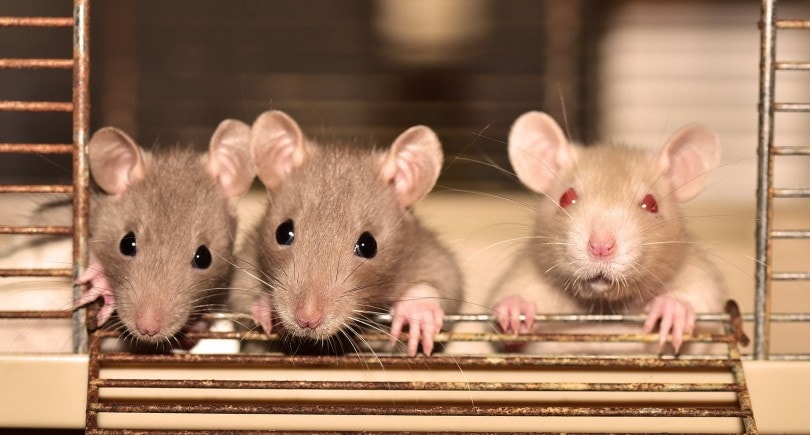
Rats perceive color in a similar way to humans, but they are red and green colorblind, meaning they see these colors as generic dark tones. While rats can see and perceive many of the color subtleties that we can, it’s the sharpness of their vision that really differentiates us and them. Rats see much of the world as a blur, due to the size and number of cones in their eyes.
Rats are not good at detecting contrast, another reason that it’s best for them to be active after dark, and they are highly sensitive to brightness.
Rats do have a unique eyesight adaptation that humans don’t, though: Rats can perceive ultraviolet light, an important factor for an animal that spends most of their time in the dark. This adaptation is to help rats see the urine marks of other rats and stick to their territory. It also helps them see well during the evening and early morning.
Interestingly, rats can move each of their eyes independently. Since their eyes are on the sides of their head, they have an almost 180-degree view. This independent eye adaptation enables rats to expand their range of vision, using information from each eye to detect potential predators. This comes with a lack of depth perception, though, so rats see the world through mostly blurry eyes. They make up for this by bobbing their heads up and down, and their brain takes mental images to calculate the depth of vision around them.
Rat smell and hearing
Since rats have poor eyesight, they use their sense of smell and hearing to compensate, along with their whiskers. Rats have an incredibly good sense of smell and can detect odors from several meters away. A rat’s hearing is also excellent, much better than ours. We can perceive frequencies up to around 20,000 hertz, while rats can hear up to 90,000 hertz!
Final Thoughts
Rats, whether wild or living in captivity as pets, are naturally nocturnal animals. While some pet rats will become more crepuscular than nocturnal to adjust to their owners’ schedules, they will still mostly be active at night. Despite being nocturnal animals, rats have poor eyesight and do not see well in the dark. Instead, they rely on their excellent hearing, great sense of smell, and sensitive whiskers to help them navigate the world at night.
See also:
Featured Image Credit: Varga, Pixabay


